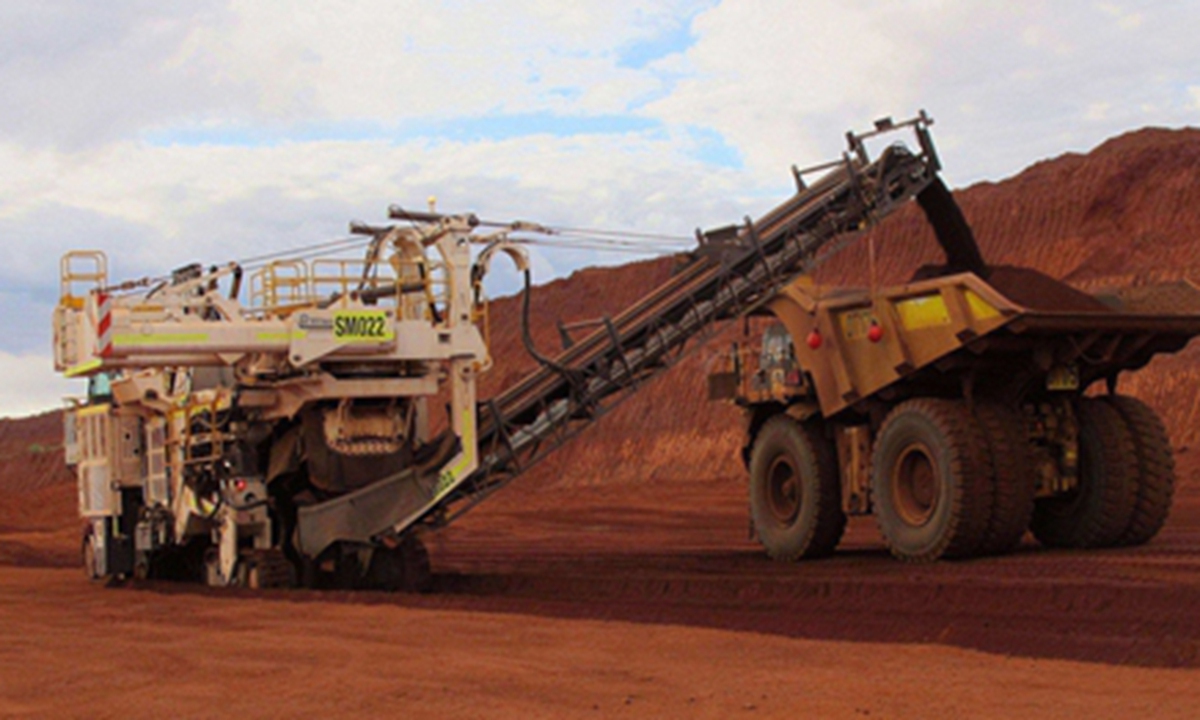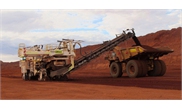
An iron ore mining site in Australia Photo: cnsphotos
Iron ore prices continue to plummet in recent days after Tangshan in North China's Hebei Province - one of the country's top steel-producing provinces - started to curb production amid China's environmental protection efforts, which triggered worries over future iron ore demand.
According to domestic news site guancha.cn, citing a report from industry website Mysteel, Tangshan local authorities held an emergency meeting on environmental protection on Monday, asking local industrial enterprises to implement production suspensions and restrictions from Tuesday to Thursday.
The last time the Tangshan government issued such a warning was in 2017.
Later on Tuesday, the main iron ore contract plunged, falling by about 10 percent during the intraday session. It closed below 1,050 yuan ($161.36) per ton, the lowest since February 9.
"Steel firms in Tangshan city started to control output at the end of February as part of the sector's anti-pollution measures based on the government's call, which has had some impact on iron ore demand," Wang Guoqing, research director at the Beijing Lange Steel Information Research Center, told the Global Times on Wednesday.
The steel production limits are in line with China's goal to reach a carbon dioxide emissions peak by 2030 and carbon neutrality by 2060, which are arduous tasks, said Xiao Yaqing, head of the Ministry of Industry and Information Technology on March 3, adding that this year, the steel industry should be a pioneer in carrying out the implementation of this policy.
China will further intensify efforts to reduce crude steel output and ensure that it declines year-on-year, according to Xiao.
Several provinces have announced plans to limit steel production to reduce carbon emissions. The city of Tangshan announced that it will implement total volume controls on a pilot basis in the steel industry and gradually extend those controls to coking, cement, power and the foundry sector. The overall goal is to reduce emissions, including carbon emissions, by more than 40 percent from 2020 levels.
Wang noted that iron ore demand is still relatively high in China, but it may gradually decline in the second half of the year, which will also dent China's demand for Australian exports.
China, the world's top producer of iron and steel, imports 60 percent of iron ore from Australia.
In January and February, China imported 181.506 million tons of iron ore, an increase of 2.8 percent year-on-year. The average import price was $144.5 per ton, up by 56.6 percent, official data showed.
Moreover, China also plans to use more scrap steel as a raw material in its steel plants, a move that analysts said will reduce reliance on iron ore imports from Australia, amid fraught bilateral ties, and in alignment with China's pursuit of carbon neutrality by 2060.
The national standard for recycled scrap steel released recently is to be officially implemented on January 1, 2021 according to the website of the National Public Service Platform for Standards Information.
"Encouraging the import of recycled iron and steel raw materials can play a role in alleviating the shortage of resources, while easing the cost of production and capital pressure of domestic steel enterprises," read the website.

